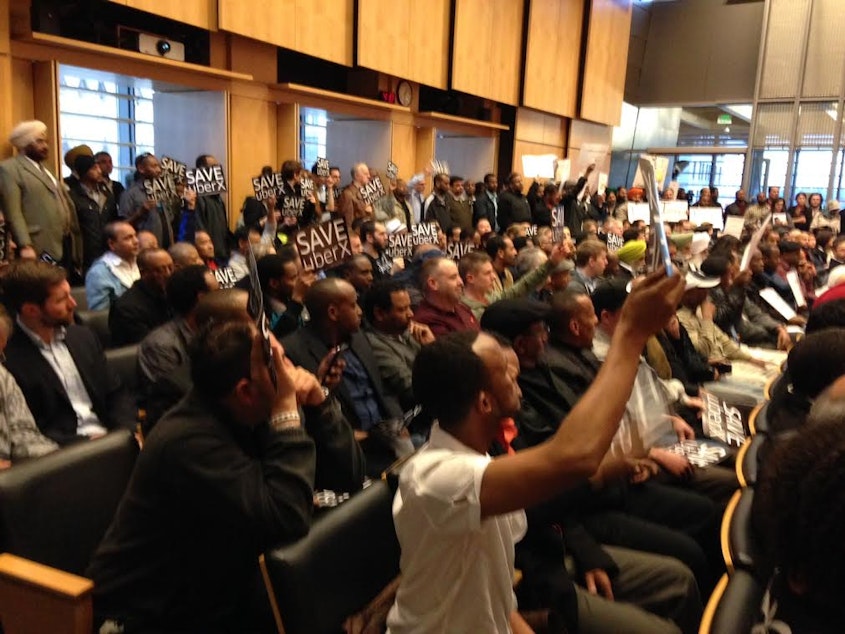Seattle's Proposed Rideshare Compromise Appears To Satisfy No One

A Seattle City Council committee has voted to impose limits on rideshare companies Thursday night. The council’s compromise seemed to disappoint everyone, from rideshare companies to taxi owners.
The council’s committee on taxi regulations has been wrestling with how to regulate rideshares like Lyft and UberX for months.
Whether or not to cap the number of rideshare drivers in order to protect the taxi industry has been the most contentious issue. Council members were unable to find the votes Thursday to completely eliminate caps or impose them. So they took a middle road, limiting the number of drivers that each rideshare company can have on the system at any one time to 150.
UberX general manager Brooke Steger said the limit is a huge disappointment and will make it impossible to meet customer demand at peak hours. “It’s going to put hundreds of drivers out of work, and it’s going to make it really difficult to get an UberX,” she said.
UberX driver Michael Cambern agreed, saying the limit will make individual drivers less efficient. “Now I’ve done exactly what they don’t want to happen, and that’s dead-heading,” he said. “Which means I’m going to be in Seattle or SeaTac and I have to drive all the way back home, and I can’t log back on because we’ve already got 150 drivers on the road.”
Taxi companies had pressed the council to cap the total number of rideshare drivers competing with them. But the council voted to endorse an unlimited number of drivers who want to work for rideshares and then to limit the number of drivers each company can have working at any one time.
Yohannes Sium of the Seattle/King County Taxi Owners Alliance said that scheme contains a loophole – it doesn’t limit the number of rideshare companies operating in Seattle.
He predicts an explosion in the number of rideshare businesses, also known as transportation network companies, or TNCs, which will then flood the market. “What happens is, even though they have a 150-vehicle cap on each TNC, you can have thousands of vehicles on the road; an unlimited amount of TNCs equals an unlimited amount of vehicles,” Sium said.
Councilmember Mike O’Brien had also said that endorsing a smaller pool of drivers would give those drivers an advantage in negotiating with the rideshare companies. By capping the number of drivers on the system for each company instead, O’Brien said the companies will have more power when it comes to allowing individual drivers to work.
But committee chair Sally Clark said the advantage to this proposal is that it will be easy to see whether the 150 drivers for each company are meeting customer demand.
The apps that customers use to summon rideshare drivers indicate the wait time and the number of drivers available. If wait times for rides increase, Clark said the council will come back and raise that limit.
The regulatory plan for rideshares must still be approved by the full council; that vote is expected to happen on March 10.

